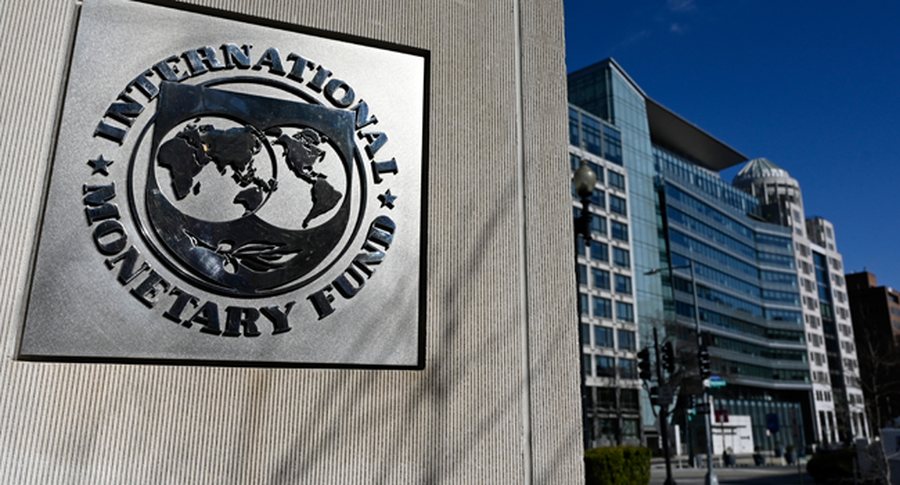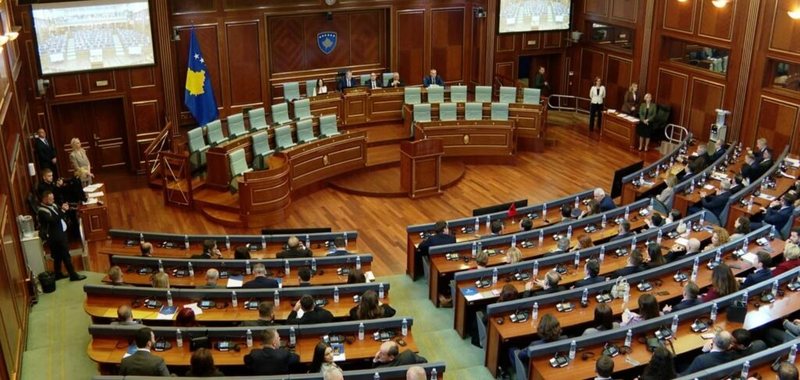“Trade turmoil risks financial stability” - According to the IMF, tariffs and rising debt threaten banks

Global financial stability risks have increased significantly since the fall, driven mainly by heightened economic uncertainty around trade policy and other geopolitical factors, the International Monetary Fund warned.
In its semi-annual Global Financial Stability Report, the IMF warned that tightening financial conditions, coupled with heightened uncertainty, are increasing financial risks around the world.
The warning of higher risks comes as the Fund lowered growth forecasts for most countries, citing the impact of U.S. tariffs.
Specifically, the IMF noted three vulnerabilities that could affect financial stability going forward. First, valuations remain high in some equity and corporate debt markets despite recent sell-offs, leaving room for further declines. Second, some financial institutions, such as hedge funds, could face pressure in volatile markets and exacerbate any sell-offs.
And finally, more turmoil could affect sovereign debt markets, especially for countries with high debt levels.
The IMF's latest update on its assessment of financial risks comes in the wake of President Donald Trump's election and his efforts to impose sweeping tariffs on trading partners around the globe. The report comes as the IMF and World Bank begin their semi-annual meetings in Washington.
The International Monetary Fund warned that tariff turmoil could hit banks hard, as a trade shock could force them to increase reserves against potential losses. A slowdown in capital markets could reduce non-lending income or disrupt trade finance, which generates $18 trillion in profits for banks globally.
In response to these risks, the IMF reiterated its call for global regulators to ensure that banks have sufficient capital and liquidity, including by implementing the global Basel III accord on higher capital standards.
The fund called for “full, timely and consistent implementation” of these new capital standards. This comes as US regulators have abandoned previous efforts to impose these rules and will instead try to create a new standard with a new minimum capital burden on banks.
The IMF also called for "independent and intensive" supervision of banks, with an increased focus on how banks and non-banks interact, which do not face similar scrutiny.

"Boom" of loans for investment financing - BoA: For the small and medium segment, banks eased lending standards
It was easier for small and medium-sized businesses to get a loan in the first quarter of the year, and this easing of lending standards is expected to......

Google faces justice - The lawsuit against the company could change the future of the internet
Google should face tougher measures to prevent it from using artificial intelligence to tighten control over online search, a lawyer for the US Justice......

Sanitary worker in season with 1200 euro salary! - Dervishi: The reason is the lack of labor and the increase in tourists
Waiters, bartenders, pizza chefs, cooks and even cleaners, resorts and hotels from south to north have started their engines for this new summer season with......

"The undeniable superiority is our program" - Berisha: We have the model for its 100% implementation
During a coffee meeting with women, the leader of the Democratic Party, Sali Berisha, stated that the undeniable advantage in these elections is the......

Balluku inspects the rehabilitation works of the Plugu road in Lushnje: It serves farmers and the urbanization of the area
In the municipality of Lushnja, in the village of Plug, the Albanian Development Fund is implementing a project to rehabilitate the road that connects this......

"Agritourism and agriculture, pillars of the economy" - Rama, with Berat farmers: Financial support for everyone
Prime Minister and Socialist Party leader Edi Rama held a meeting with farmers and entrepreneurs in the Berat region. During the meeting, Rama emphasized the......

Trump targets pharmaceutical firms - Proposes lowering prices of American drugs
Drugmakers have been warned that the Trump administration is considering lowering drug prices in the United States, bringing them closer to the low prices......

Election of Speaker of Parliament in Kosovo fails again
The new deputies of the Ninth Legislature of the Assembly of Kosovo, who were sworn in last week, once again failed to secure a majority to vote for the new......


















